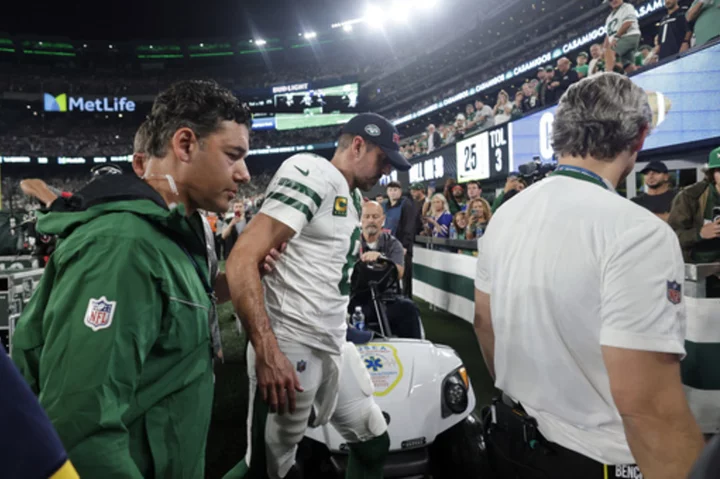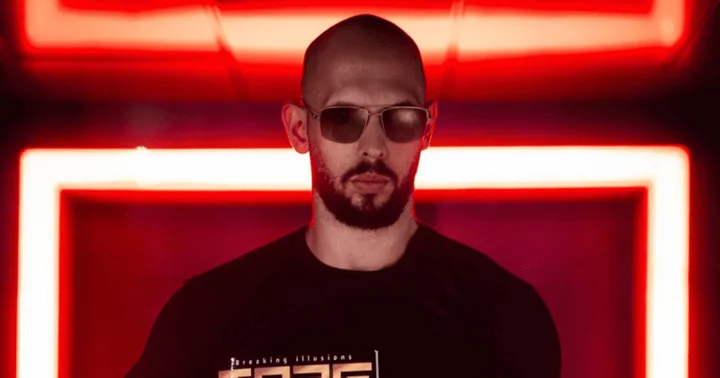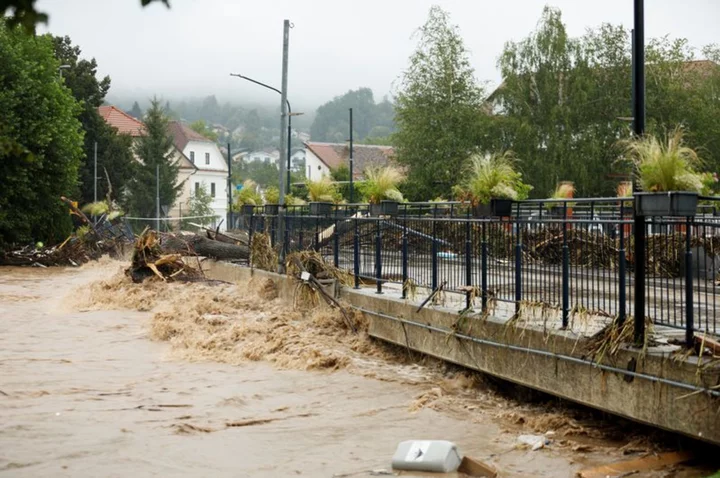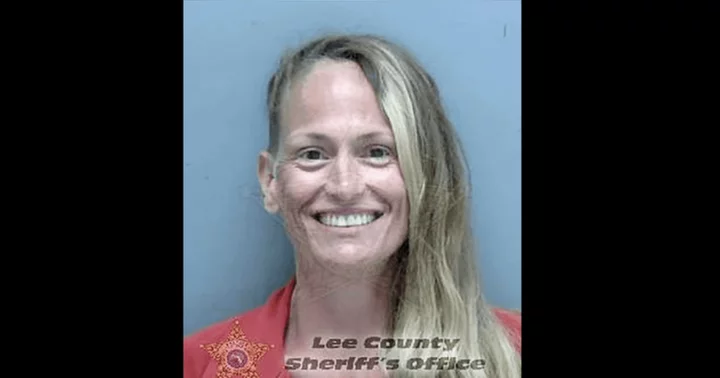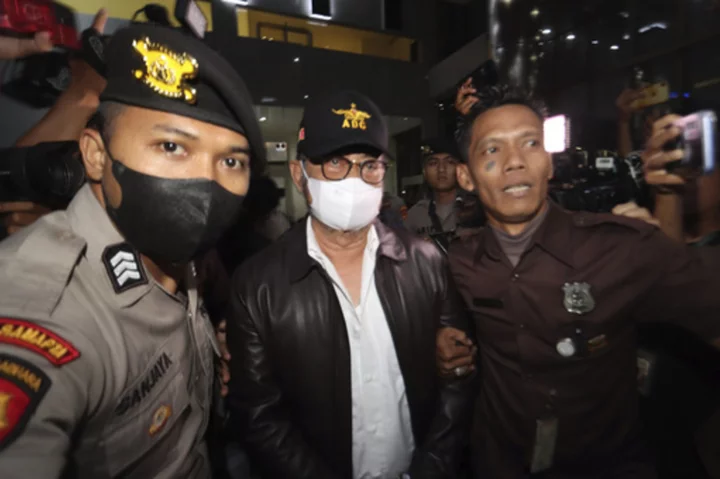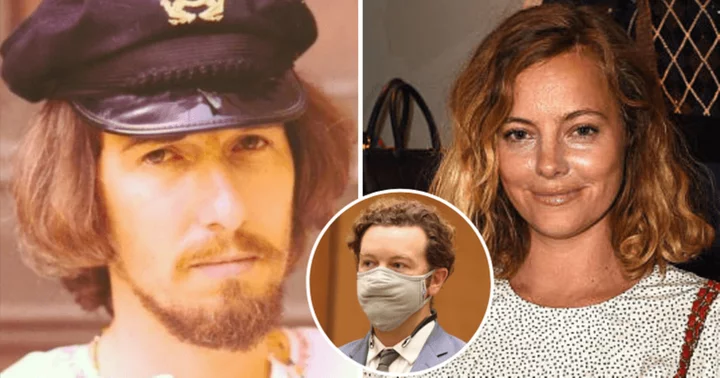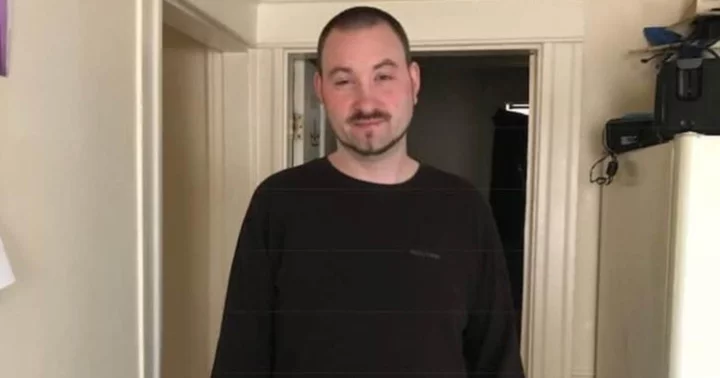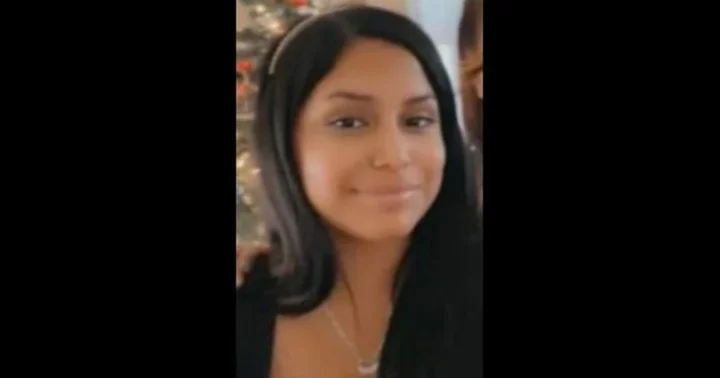NASHVILLE, Tenn. (AP) — Skin scraped down to bloody patches. Sore bodies stinging in post-game showers. Aching shoulders, backs, hips, knees and ankles.
Add in season-ending injuries like four-time MVP Aaron Rodgers tearing his left Achilles tendon in his debut with the New York Jets on Monday night and Buffalo pass rusher Von Miller tearing his ACL, an incident that he blames on artificial turf.
Yes, NFL players prefer playing on natural grass. It's why the NFL Players Association called on the league Wednesday to switch all fields to grass in what executive director Lloyd Howell said was “the easiest decision the NFL can make.”
It's a matter of career preservation.
“I mean the NFL is already ‘Not For Long,’ right?” Carolina linebacker Shaq Thompson said. “It sucks it had to happen that way. ... Hopefully they run with it. Hopefully they blow it up and shout it out loud and everybody puts it on social media, takes a stand and does something.”
The players union repeated its call for grass less than 48 hours after Rodgers' injury. Howell said players know the change would cost money but argue the bigger cost is losing the NFL's best players to “unnecessary injuries.”
Thompson has criticized Carolina owner David Tepper for replacing grass with an artificial surface at the Panthers' stadium in 2021 — in part to host Charlotte's new Major League Soccer team.
When the 2026 World Cup is held in North America, all 11 U.S. venues will be at NFL stadiums.
NFL Commissioner Roger Goodell said Wednesday on ESPN he is meeting with the head of FIFA next week about the World Cup. Plans currently call for host stadiums to use grass mixed with artificial surface. Lambeau Field has featured Kentucky bluegrass sod weaved in with synthetic fibers since 2018.
“Something that we’re working to try to see is that a better surface for us?" Goodell said. "Because you have to look at climate too. This is not just about is the field going to be good in September? Is it also going to be good in December and January?”
The current collective bargaining agreement uses science to measure injuries, with the NFL and the union using the same data. Goodell noted Rodgers had one of two Achilles tendon tears in the NFL's first week — the other, suffered by Baltimore's J.K. Dobbins, occurred on grass.
“That is where we make decisions, on the basis of science, not because I see an injury that I don’t like," Goodell said.
The union has wanted all grass fields for years. In April, the union released studies from 2012-22 arguing a significant increase in non-contact injuries on artificial surfaces vs. grass. The NFL has defended artificial turf, pointing to 2021 when the numbers for injuries on both surfaces were close.
Rodgers argued for grass all over the league last November while with the Green Bay Packers. He said some artificial surfaces are softer, creating more wobble when the foot hits the ground. Grass allows cleats to pull away, leaving a divot.
New York Giants wide receiver Sterling Shepard tore his Achilles tendon late in 2021 at MetLife Stadium, then he tore an ACL last season on the same field. A new artificial surface was installed this year, and Shepard said it might be a little softer but “turf is turf.”
Jets coach Robert Saleh said Tuesday that he didn't see the surface as being an issue in Rodgers' injury. The 39-year-old quarterback got hurt when he was taken down by Bills defender Leonard Floyd.
“If it was a non-contact injury, then I think that would be something to discuss, obviously," Saleh said. "But ... I think that was trauma-induced. I do know the players prefer grass and there is a lot invested in those young men.”
Miller joined a campaign lobbying for grass at all NFL stadiums after his injury. Cincinnati quarterback Joe Burrow said a league standard for artificial surfaces would help. Two-time NFL MVP Patrick Mahomes, who plays on grass in Kansas City, said it's simple.
“The numbers say that grass is healthier for the players, and I want to play on the surface that keeps me healthy,” Mahomes said.
Green Bay left tackle David Bakhtiari, who was busy on social media after Rodgers was hurt, said he knows the NFL is a business. Owners can wait to demand something in return during the next contract negotiations, and artificial surfaces help them make money hosting other events.
“That’s the bottom dollar, bottom line. Follow the money. Simple as that,” Bakhtiari said.
The Tennessee Titans will debut the NFL's newest artificial surface Sunday in their home opener against the Los Angeles Chargers after trying, and struggling, to grow grass in Nashville for 24 seasons.
Their fake turf is anchored by shredded coconut husks and cork, not rubber pellets. The Titans cited NFL data putting Nissan Stadium among the league leaders for games where players suffered lower-body injuries.
Nissan also hosts the annual CMA Fan Fest each June. Taylor Swift, Ed Sheeran and George Strait performed there this summer. The stadium is home to the annual Music City Bowl each December.
Titans coach Mike Vrabel, who played 14 NFL seasons in stadiums that featured original artificial turf, said technology has improved and he likes what Tennessee installed.
“I understand that we need to do everything that we can to keep our players safe and understand that sometimes injuries are unavoidable based on whatever you’re doing and playing professional sports,” Vrabel said.
Virginia nose tackle Olasunkonmi Agunloye was carted off the field with torn patellar tendons on both knees after slipping as he celebrated recovering a fumbled punt in a college game against Tennessee at Nissan Stadium.
Keeping stars on the field keeps money flowing in the NFL, so Bakhtiari called grass a matter of smart business.
“You have enough great players not out there, the quality of the game and the sport goes down," Bakhtiari said. "No one wants that. Like I said before, we already play a violent enough game. Don’t add to it.”
___
AP Pro Football Writers Rob Maaddi and Dennis Waszak Jr. and AP Sports Writers Steve Megargee, Dave Skretta, Steve Reed, Brett Martel, John Wawrow, Joe Reedy, Andrew Seligman, Hank Kurz Jr., Tom Canavan, Fred Goodall, Mitch Stacy and Tim Booth contributed to this report.
___

